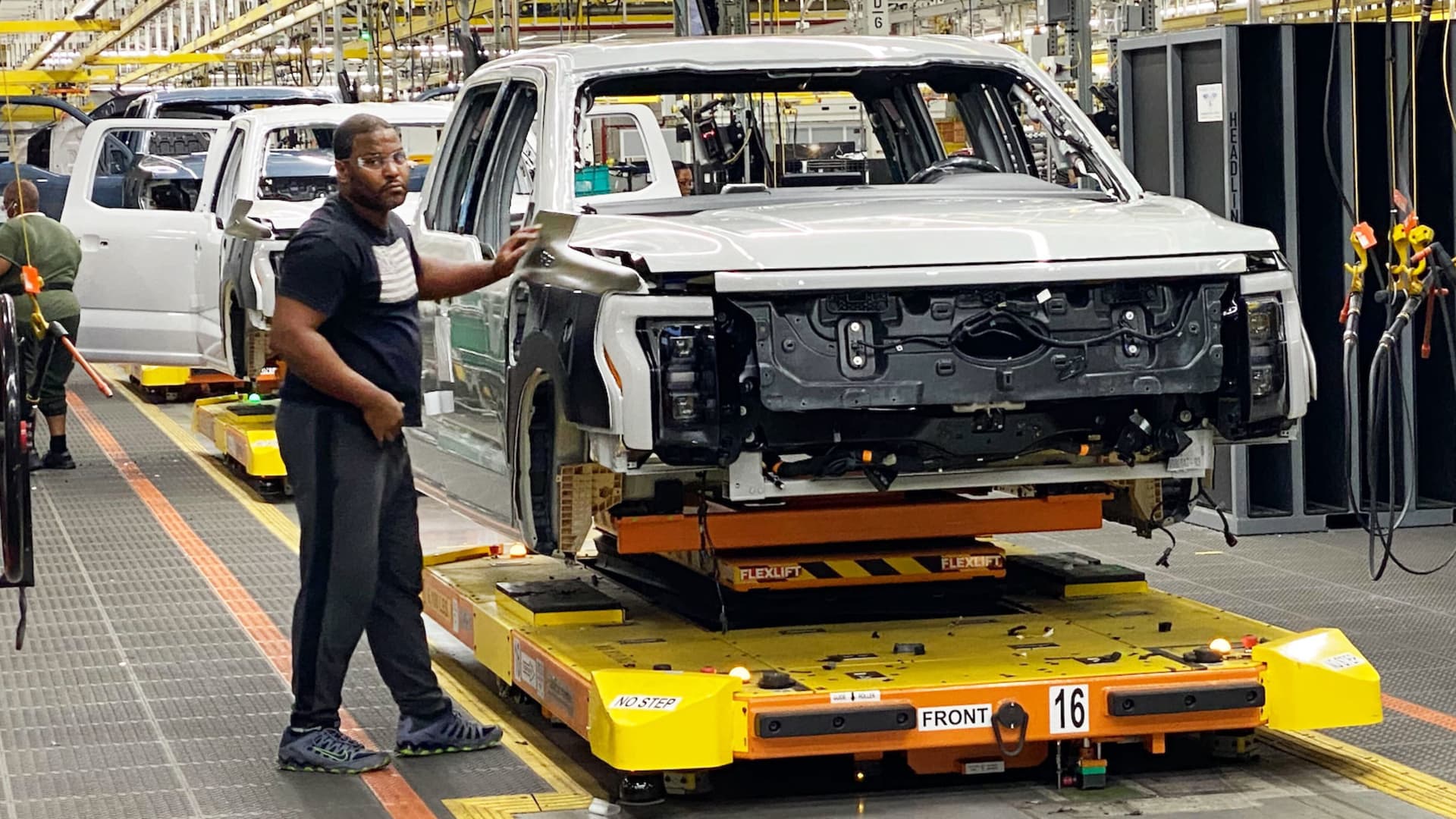Ford Electric Vehicle Production Plans Scaled Back Due to Customer Reluctance
In a move that reflects customers’ hesitancy to pay a premium for electric vehicles (EVs), Ford has decided to delay approximately $12 billion in planned spending on new EV manufacturing capacity. Despite a growing demand for EVs in the industry, the rate of growth has not met Ford’s initial expectations, which has posed challenges for the automaker’s ambitious plans to increase production.
While Ford is committed to the development of future electric vehicle models, the company now plans to gradually increase its EV manufacturing capacity and adjust its spending accordingly. During a media briefing, Ford’s CFO, John Lawler, clarified that the focus is on evaluating the pace of capacity expansion and making necessary adjustments. Lawler emphasized that Ford is not abandoning its second-generation EV products but rather reassessing the timeline for investments.
Ford cited customer feedback as a driving factor behind this decision. Many customers in North America are no longer willing to pay extra for an electric vehicle when they have the option of internal-combustion or hybrid alternatives. As a result, the automaker will postpone the construction of a planned second battery plant in Kentucky, while continuing with the development of Blue Oval City, its new EV manufacturing campus in Tennessee.
“The customer is going to decide what the volumes are,” Lawler stated, emphasizing Ford’s ability to balance production across gas, hybrid, and electric vehicles to align with the speed of EV adoption.
In its Q3 earnings report, Ford’s electric-vehicle business unit, Ford Model e, posted an operating loss of $1.3 billion, double the previous year’s loss. Despite a 26% increase in revenue, the unit’s operating loss for the first three quarters of 2023 totaled approximately $3.1 billion, consistent with Ford’s earlier projection of a $4.5 billion annual loss.
Given the recent developments in ongoing labor negotiations with the United Auto Workers union, Ford withdrew all its guidance for 2023 in its earnings report. The company’s mission to strike a tentative deal with the union has influenced this decision.
In response to the changing preferences of customers and the need to align manufacturing capacities accordingly, Ford is making strategic adjustments to its EV production plans. The automaker remains committed to creating a sustainable transition to electric vehicles while addressing the market demands and challenges that arise along the way.

I have over 10 years of experience in the cryptocurrency industry and I have been on the list of the top authors on LinkedIn for the past 5 years. I have a wealth of knowledge to share with my readers, and my goal is to help them navigate the ever-changing world of cryptocurrencies.











